-
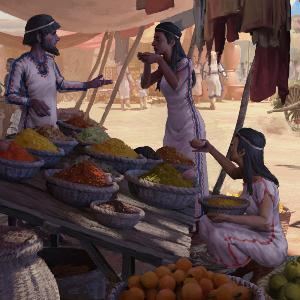 Archaeology: The aroma of distant worlds
Archaeology: The aroma of distant worldsExotic Asian spices such as turmeric and fruits like the banana had already reached the Mediterranean more than 3,000 years ago, much earlier than previously thought.
-
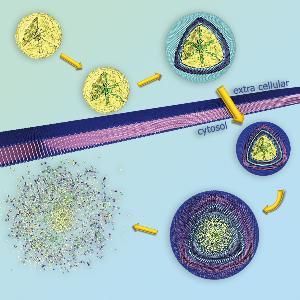 Nanoparticles as weapons against cancer
Nanoparticles as weapons against cancerLMU researchers have developed a novel type of nanoparticle that efficiently and selectively kills cancer cells, thus opening up new therapeutic options for the treatment of tumors.
-
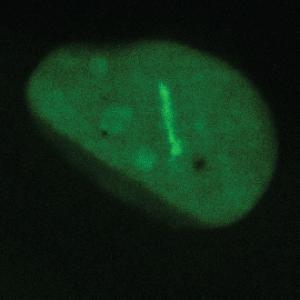 Coaxing cancer cells to commit suicide
Coaxing cancer cells to commit suicideChemical inhibition of an enzyme that is essential for DNA repair offers a possible strategy for the treatment of specific cancers.
-
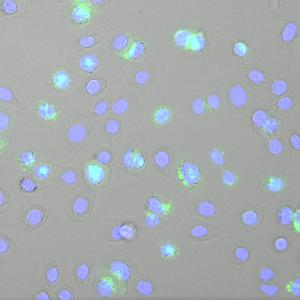 How epithelial cells ward off viruses
How epithelial cells ward off virusesA team led by LMU‘s Veit Hornung has shown that a protein found in skin cells recognizes a specific nucleic acid intermediate that is formed during virus replication. This recognition process subsequently induces a potent inflammatory response.
-
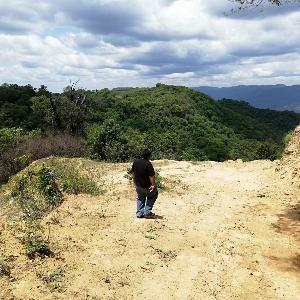 Bringing the locals onboard
Bringing the locals onboardA new study examines local perceptions of Chagas disease in a region where the infectious agent is endemic. The results underline the need to take social and cultural factors into account in campaigns designed to curb infectious diseases.
-
 The prehistory of modern dogs
The prehistory of modern dogsAn international team of scientists has used ancient DNA samples to elucidate the population history of dogs.
-
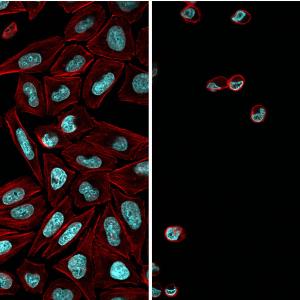 A light-trigger for the proteasome
A light-trigger for the proteasomeLMU researchers have designed a light-sensitive inhibitor that can control cell division and cell death – and provides a promising approach for studies of essential cellular processes and the development of novel tumor therapies.
-
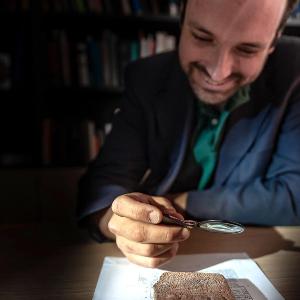 A woman picks up her stylus …
A woman picks up her stylus …LMU researchers have shown that one of the most significant literary texts that survives from Late Bronze Age Mesopotamia was very probably written by a woman, and not by a man, as hitherto assumed – a minor sensation for experts.
-
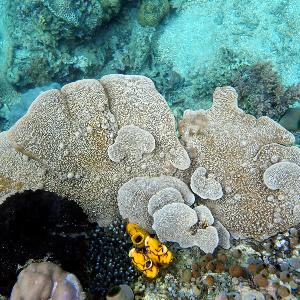 Sponges as biomonitors of micropollution
Sponges as biomonitors of micropollutionSponges are filter feeders that live on particulate matter – but they can also ingest microscopic fragments of plastics and other pollutants of anthropogenic origin. They can therefore serve as useful bioindicators of the health of marine ecosystems.
-
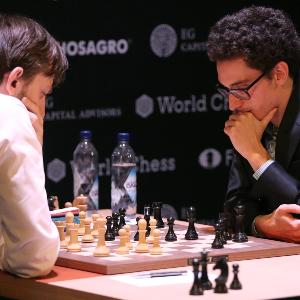 Better than our predecessors
Better than our predecessorsWe employ our cognitive skills daily to assimilate and process information. A new empirical study shows that we do better at this task than those born a century ago. But cognitive capacity still begins to stagnate at around the age of 35.
-
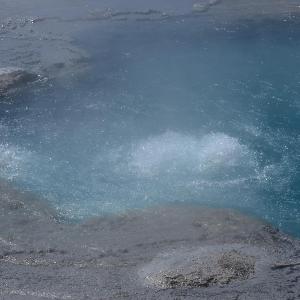 In the beginning, there was sugar
In the beginning, there was sugarOrganic molecules formed the basis for the evolution of life. But how could inorganic precursors have given rise to them? LMU chemist Oliver Trapp now reports a reaction pathway in which minerals catalyze the formation of sugars in the absence of water.
-
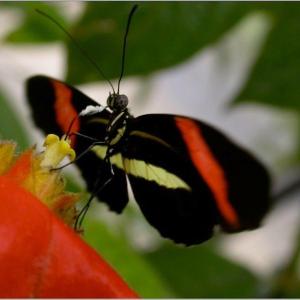 Shifts in mating preference
Shifts in mating preferenceIn their efforts to identify the genetic basis for differences in mate choice that keep two co-existing species of butterfly separate, evolutionary biologists at LMU have identified five candidate genes that are associated with divergence in visual ma...
-
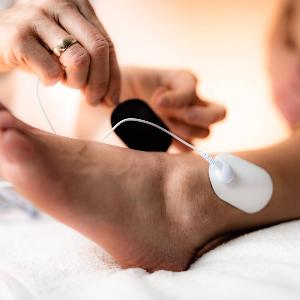 The placebo effect meets the proteome
The placebo effect meets the proteomeThe molecular bases of the placebo effect are poorly understood. A team led by LMU researcher Karin Meissner has now studied the phenomenon in the context of nausea, and identified specific proteins that correlate with its favorable impact.
-
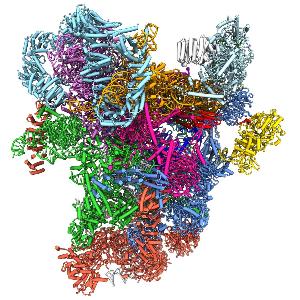 Ribosomes and Russian dolls
Ribosomes and Russian dollsMaturation of the ribosome is a complex operation. Work by an LMU team now shows that the 90S precursor of the small 40S subunit undergoes a ‘molting’ process, during which it progressively discards its outermost components.
-
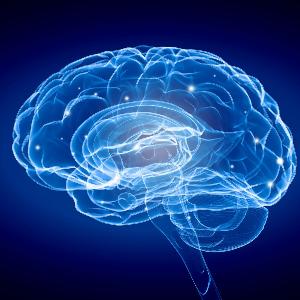 To keep pain in check, count down
To keep pain in check, count downDiverse cognitive strategies affect our perception of pain. Studies by LMU neuroscientist Enrico Schulz and colleagues have linked the phenomenon to the coordinated activity of neural circuits located in different brain areas.
-
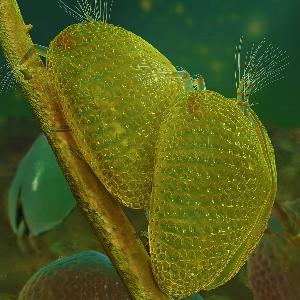 The oldest known sperm cells
The oldest known sperm cellsAn international team of paleontologists has discovered giant sperm cells in a 100-million year-old female ostracod preserved in a sample of amber. Clearly, the tiny crustacean had mated shortly before being entombed in a drop of tree resin.
-
Spectral classification of excitons
Ultrathin layers of tungsten diselenide have potential applications in opto-electronics and quantum technologies. LMU researchers have now explored how this material interacts with light in the presence of strong magnetic fields.
-
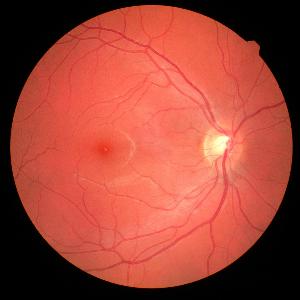 Novel targets come into view
Novel targets come into viewRetinitis pigmentosa is the most prevalent form of congenital blindness. Using a retinitis pigmentosa mouse model, LMU researchers have now shown that targeted activation of genes of similar function can compensate for the primary defect.
-
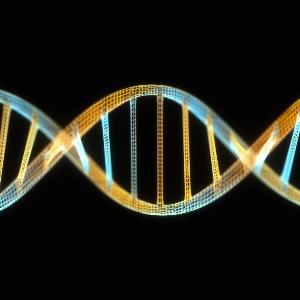 Locating and severing lethal links
Locating and severing lethal linksCovalent cross-links between proteins and DNA are among the most hazardous types of DNA damage. LMU researchers have now characterized an enzyme that breaks such bonds, and elucidated how it specifically recognizes sites of damage.
-
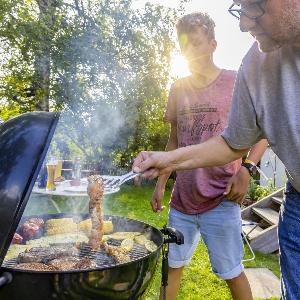 The meanings of meat
The meanings of meatInvitations to dinner more often entail the consumption of meat than does an evening meal alone at home. A new study by LMU researchers shows that the willingness to forego meat is highly context dependent.
-
 Chemical evolution in a tiny Gulf Stream
Chemical evolution in a tiny Gulf StreamChemical reactions driven by the geological conditions on the early Earth might have led to the prebiotic evolution of self-replicating molecules. LMU scientists now report on a hydrothermal mechanism that could have promoted the process.
-
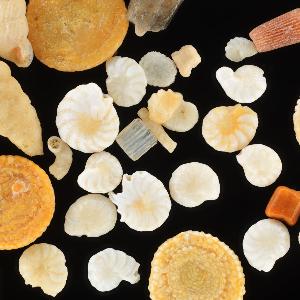 How to survive below the seafloor
How to survive below the seafloorForaminifera, an ancient and ecologically highly successful group of marine organisms, are found on and below the seafloor. LMU geobiologists report that several species not only survive, but thrive, in these oxygen-free sediments.
-
A first for a unique instrument
Munich geophysicists have measured Earth’s spin and axis orientation with a novel ring laser, and provided the most precise determination of these parameters yet achieved by a ground-based instrument without the need for stellar range finding.
-
Viral shutdown of protein synthesis
Researchers from Munich and Ulm have determined how the pandemic coronavirus SARS-CoV-2 inhibits the synthesis of proteins in infected cells and shown that it effectively disarms the body’s innate immune system.
-
 The most personal device
The most personal deviceEveryone who uses a smartphone unavoidably generates masses of digital data that are accessible to others, and these data provide clues to the user’s personality. Psychologists at LMU are studying how revealing these clues are.
-
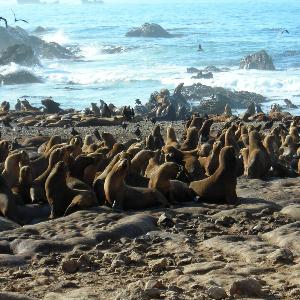 Origins of genetic variability in seals
Origins of genetic variability in sealsA new study led by LMU researchers shows that fluctuations in population sizes in the past have had a significant effect on contemporary seal populations, and estimates the risk of genetic impoverishment in the species investigated.
-
Warm springtime’s unwelcome legacy
A new study shows that the severe impact of the summer drought that hit Europe in 2018 was partly due to the spring heatwave that preceded it, which triggered early and rapid plant growth, depleting soil moisture.
-
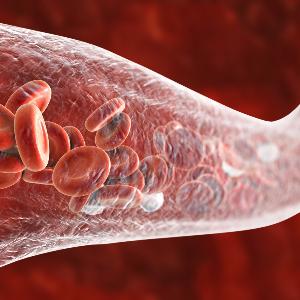 How a microRNA protects vascular integrity
How a microRNA protects vascular integrityLMU researchers have discovered a hitherto unknown molecular function of a specific microRNA that preserves integrity of the endothelium and reduces the risk of atherosclerosis.
-
 Not every study is robust
Not every study is robustWhy are many scientific findings in various fields so hard to replicate? LMU researchers will coordinate a new DFG-funded Priority Program that will try to answer this question for the social, behavioral and cognitive sciences.
-
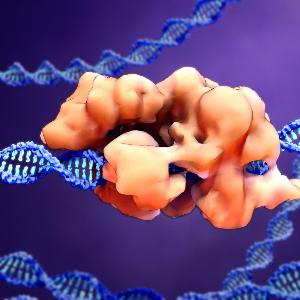 Taming CRISPR’s collateral damage
Taming CRISPR’s collateral damageCRISPR-Cas9 can alter genes at pre-defined sites in specific ways, but it does not always act as planned. An LMU team has now developed a simple method to detect unintended ‘on-target’ events, and shown that they often occur in human stem cells.
-
 Exploiting tumor vulnerability
Exploiting tumor vulnerabilityScientists at LMU have shown that a signaling pathway which is disrupted in Ewing sarcoma specifically sensitizes tumor cells to a particular drug. The finding may open a route to new therapies for the most aggressive forms of the disease.
-
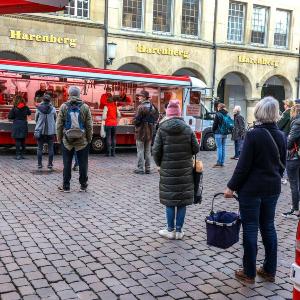 The downside of social distancing
The downside of social distancingWhen faced with danger, humans draw closer together. Social distancing thwarts this impulse. LMU’s Professor Ophelia Deroy and colleagues argue that this dilemma poses a greater threat to society than overtly antisocial behavior.
-
Acidic alert
LMU researchers have synthesized nanoparticles that can be induced by a change in pH to release a deadly dose of ionized iron within cells. This mechanism could potentially open up new approaches to the targeted elimination of malignant tumors.
-
Your number’s up!
mRNAs program the synthesis of proteins in cells, and their functional lifetimes are dynamically regulated. LMU researchers have now shown why blueprints that are more difficult to decipher have shorter lifetimes than others.
-
Race against time
LMU virologist Gerd Sutter talks about the complex task of developing a vaccine against the new coronavirus – and the approach he has adopted, which is already being tested against the related coronavirus MERS.
-
Safeguarding chloroplasts from sunburn
Intense sunlight damages the chloroplasts that are essential for photosynthesis, and generates toxic products that can lead to cell death. LMU biologists have now identified a signaling pathway which mitigates the effects of light stress.
-
Maintaining mitochondrial resilience
Mitochondria cannot autonomously cope with stress and must instead call on the cell for help. Molecular geneticists at LMU have identified the long-sought signaling pathway which enables the organelles to do so.
-
Tonsils as a testbed
Biomedical researchers at LMU have isolated immune cells from human tonsils obtained following routine surgery, and used them to analyze aspects of the immune response and test the effects of anti-inflammatory agents at the cellular level.
-
Key insights from small samples
The study of a rare genetic disease has enabled a team led by LMU’s Christoph Klein to uncover the role of a membrane-associated protein in the development and function of human T cells.
-
Five clearly defined patterns
Psychiatrists led by LMU’s Nikolaos Koutsouleris have used a computer-based approach to assign psychotic patients diagnosed as bipolar or schizophrenic to five different subgroups. The method could lead to better therapies for psychoses.
-
Logistics of self-assembly processes
The efficient self-assembly of functional protein complexes is a major goal of industrial biotechnology. A new LMU study shows that the productivity of such processes crucially depends on tight regulation of the supply of components.
-
Finding the right blend!
In the battery of the future, solids will replace the currently used electrolyte solutions. A team of scientists at LMU has now developed a series of new sodium ion conductors. The secret of the best material in the series lies in the exact mixing of ...
-
Lane change in the cytoskeleton
Many amphibians and fish are able to change their color in order to better adapt to their environment. Munich-based scientists have now investigated the molecular mechanisms in the cytoskeleton necessary for this and revealed potential evolutionary pa...
-
Inheritance of epigenetic marks
A study undertaken by an international team led by LMU molecular biologist Axel Imhof sheds new light on the mechanisms that control the establishment of epigenetic modifications on newly synthesized histones following cell division.
-
The pronunciation paradox
Learners of foreign languages can hear the errors in pronunciation that fellow learners tend to make, but continue to fall foul of them themselves despite years of practice. A new LMU study shows that everyone believes their own pronunciation to be best.
-
Special delivery
Bulky globular proteins require specialized transport systems for insertion into membranes. LMU researchers have determined the structure of such a system for the first time, and propose that it exploits the principle of the airlock.
-
Orientation of protein patterns
During embryogenesis in the nematode Caenorhabditis elegans, the first cell division occurs transverse to the long axis of the fertilized egg. In a new study, biophysicists at LMU have now shown how this axis is reliably selected.
-
Putting a nanomachine to work
A team of chemists at LMU has successfully coupled the directed motion of a light-activated molecular motor to a different chemical unit – thus taking an important step toward the realization of synthetic nanomachines.
-
On the way to quantum networks
Physicists at LMU, together with colleagues at Saarland University, have successfully demonstrated the transport of an entangled state between an atom and a photon via an optic fiber over a distance of up to 20 km – thus setting a new record.
-
-
Outsourcing is a matter of time
Immune cells found in the mouse kidney at various stages of development are morphologically virtually indistinguishable. It now turns out that these cells are derived from different tissue sources at different stages in the animal’s life.
-
-
One size may not suit all
A new study published by biologists at LMU demonstrates that there are no simple or universal solutions to the problem of engineering plants to enable them to cope with the challenges posed by climate change.

